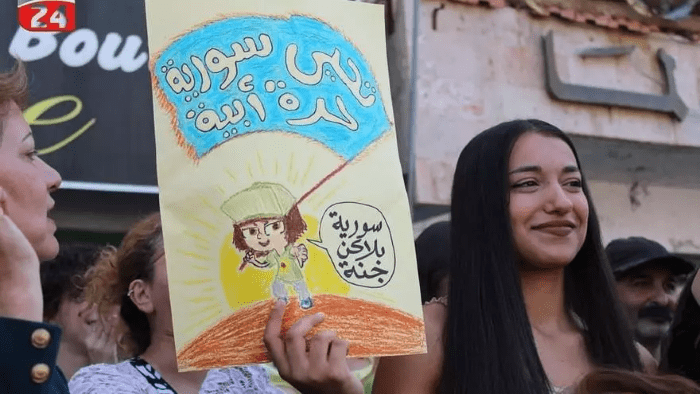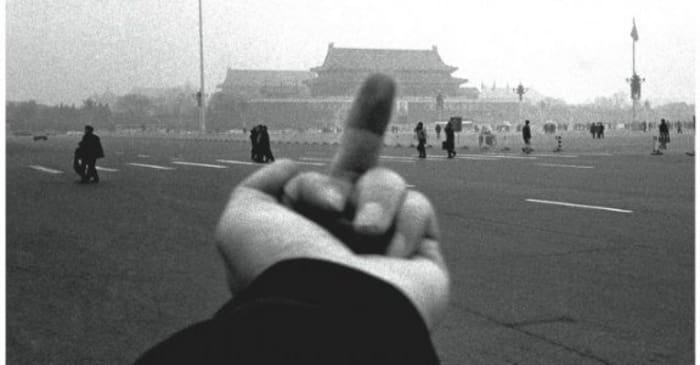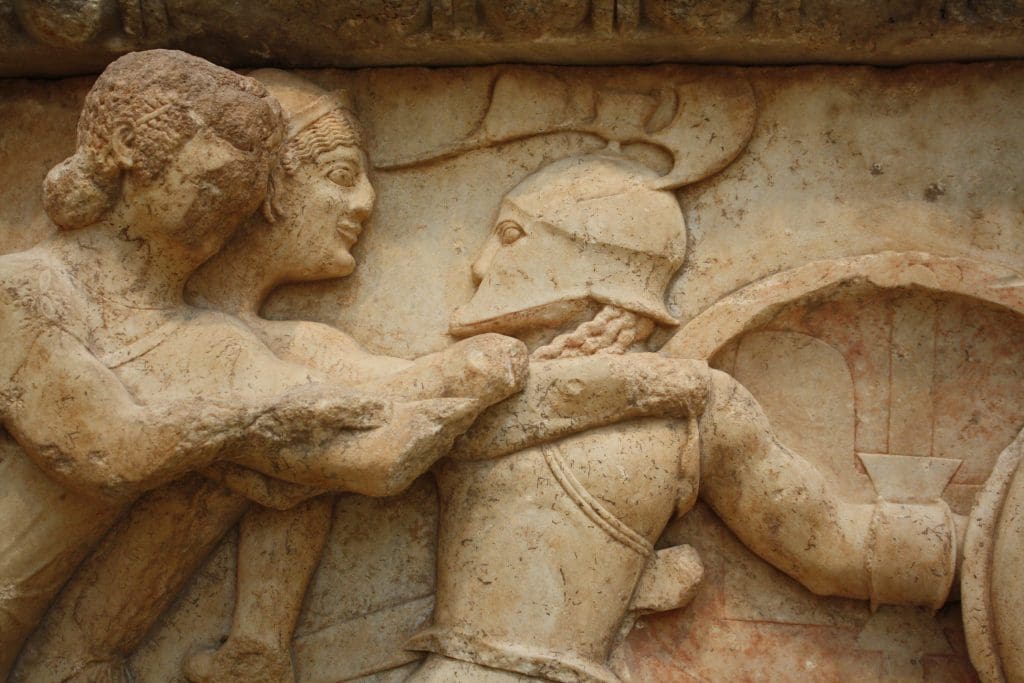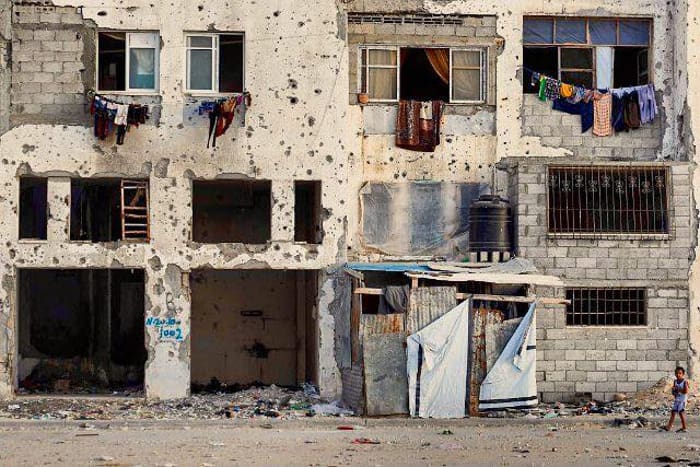A Syrian woman in Sweida holds a poster that says “long live Free and Proud Syria” and “Syria without [the regime] would be paradise.”
Syrian Women Say “Enough” in a New Wave of Protests
by Leila Nachawati for elDiario.es
1 September 2023 (original post in Spanish)
A woman with brown skin of about forty years’ age looks straight into the camera and declares: “From the Plaza of Dignity in Sweida: no sect or religion will be able to divide us. We are the Syrian people, the Syrian people are one, and we won’t accept anything less than the fall of the regime of Bashar al-Assad.” A blond woman with pale skin takes her place. With the same force and conviction as the other woman, she exclaims: “We are the free women of Syria and we will not stop until we get our freedom and our dignity.”
We’re not talking about 2011 here – this is August, 2023. In the past week, a powerful new wave of protests has emerged in cities spanning from Daraa, known for being one of the original birthplaces of the 2011 uprisings, to a much more recently incensed Sweida (also known as As-Suwayda).
Although the current protests were sparked by the dire economic conditions that the Syrian people are enduring (over 90% of the population is living below the poverty line and half of the country experiences food insecurity), the slogans being chanted on the first few days of protests have invoked the same demands for freedom, justice, and dignity that the initial uprisings in 2011 brought forth.
According to the Syrian organization ETANA, in the last week alone more than ten thousand people have participated in protests in over two hundred cities and towns, the city of Sweida being their epicenter. Although the Syrian regime and its Russian allies continue to indiscriminately bomb civilian infrastructure in cities like Idlib, there has been little to no response from the international community. However, it is the city of Sweida that could prove to be a much bigger headache for the regime, given the relatively neutral position that Sweida has held for the last twelve years, and given its population is majority Druze, who the regime has always boasted about protecting.
The women of Sweida leading protests today are demanding the fulfillment of the UN Resolution 2254 and the liberation of all political prisoners, connecting their grievances with the upwards of 130,000 people who have been detained and forcibly disappeared by the regime since 2011.
“Eradicate the resistance”
As feminist investigative reporter Razan Ghazzawi reminds us:
The first person ever to dare publicly to ask president Bashar Al-Assad to step down was in fact a woman, and from [a] minority community: the Druze. Muntaha Al-Atrash, daughter of Sultan Atrash, the leader of the so-called ‘Great Syrian Revolution’ of 1925. On April 12, 2011 when out of fear, the protests in Syria were mainly asking for reforms and not for the toppling for the regime, Atrash, in a phone interview with Al-Shark Al-Awsat newspaper, called Assad to step down in response to peaceful protests.
In this past decade of intensified repression on the regime’s part, joined in later years by extremist groups with their own counterrevolutionary agendas, the visible public presence of women has dwindled as the situation in Syria has evolved into armed conflict. With the exception of some sectors, amongst whom the Kurdish YPJ (Women’s Protection Unit) have distinguished themselves, the Syrian resistance against the dictatorship and other extremist groups have mostly been comprised of men fighting in their ranks.
Nevertheless, women were a fundamental part of the resistance, and they have continued to be in other elements of life since the civil disobedience movement of 2011, all across the country and throughout the subsequent armed conflict. In fact, the revolutionary process in Syria cannot be understood without key figures like Razan Zeitouneh, Fadwa Suleiman, or May Skaf, all of whom were disappeared or died.
In her 2012 essay Syrian women, backbone of the revolution, Syrian author Rime Allaf recounted the key role that women’s leadership played in the beginnings of the revolutionary process. Allaf herself told elDiario.es that women and children “were targeted from the outset by the regime and by the groups with black flags alike, who had begun to expand their reach across the country. Their goal was to eradicate the resistance by targeting this half of the population, who have a stronger link to the peaceful resistance that authoritarians so deeply fear.”
“Se acabó” (“It’s over”): the connection with other struggles
In addition to the local context, Allaf outlines the importance of connecting Syrian women’s resistance with other struggles, like those of Iranian, Chilean, or Spanish women. She points to the “Se acabó” movement in particular, which is currently playing out in Spain and which activists worldwide are following as a new evolution of the #MeToo movement.
“I would say that what’s happening in Spain is more powerful and more profound, and it gets deeper at the root of the problem than #MeToo did,” Allaf points out, “because #MeToo started from a position of victimization, while ‘Se acabó’ looks directly at these dominant systems and says ‘We draw the line here. We’ve been waiting for so long and we’re not waiting anymore.’ That’s why other contexts like that of Sweida resonate so much, because in Syria, women have also come out to tell the regime ‘Se acabó. We’ve been waiting for so long and we’re not waiting anymore.’ Although there are major differences between the Spanish and Syrian contexts, a strong and indignant ‘Se acabó’ resonates from the mouths of Syrian women as well.”
While Allaf focuses on the indignation of Syrian women against the regime that has devastated their country, Syrian journalist Zeina Erhaim emphasizes the frustration of being a woman in a revolutionary context that has not stopped coopting women’s demands. She explains to elDiario.es: “It’s always the same, we women give everything we have to fight for freedom and then we are pushed aside so they can return to the same patterns as always.”
In 2013, Syrian activist Marcel Shehwaro had already been critiquing the prevalence of sexism in zones that had temporarily remained outside of the regime’s control and that had achieved significant advances in local self-administration, before the advances of ISIS. Shehwaro, who participated actively in these spaces of self-administration, denounced these patriarchal dynamics on various occasions, as demonstrated by this video, in which one of the local Islamist authorities attempted to obligate her to wear a veil:
“The dream of a free Syria is alive”
Both Allaf and Erhaim expressed being proud of the women and men of Syria for their recent acts of courage, along with their fear of the more than foreseeable retaliation that is to come. In the past twelve years, the Syrian regime has shown time and again a complete unwillingness to negotiate with their country’s peaceful resistance, who have been primed for extreme repression since the beginning: opening fire at demonstrations, detaining and torturing protestors, bombarding civilians, setting off chemical weapons, repression and torture in prisons that Amnesty International labeled “human slaughterhouses.”
In response to all this, Syrian-British activist Leila Al-Shami reports:
In recent days coordinated campaigns have appeared on social media with a list of demands and calls to protest. One is the 10 August Movement which, amongst other things, calls for the establishment of a transitional government in line with UN Security Council resolution 2254 (2015), an end to sectarian division, an end to foreign occupation and external intervention, the release of all detainees and the prosecution of war criminals.
These courageous women and men across the country have shown that the regime cannot bomb, starve, torture, gas and rape the Syrian people into submission. Despite everything they have been through, and in the absence of meaningful solidarity with their struggle, the dream of a free Syria is alive. The world may choose to normalize with Assad, but Free Syrians have time and again made clear they will never accept his rule.
Activists in Sweida suspect that Assad’s forces have begun to vacate their posts with the goal of making way for ISIS combatants to enter their territory. “If the extremists make their way into the city, it will be easy for Assad to initiate another one of his military campaigns with the excuse of finishing off ISIS, but all of us know that his goal is, and always has been, to finish off the free men and women of Syria,” asserts Allaf.
Embedded tweets from the original post can be found here and here
Translated by Antidote
Featured image courtesy of Canal Suwayda 24





